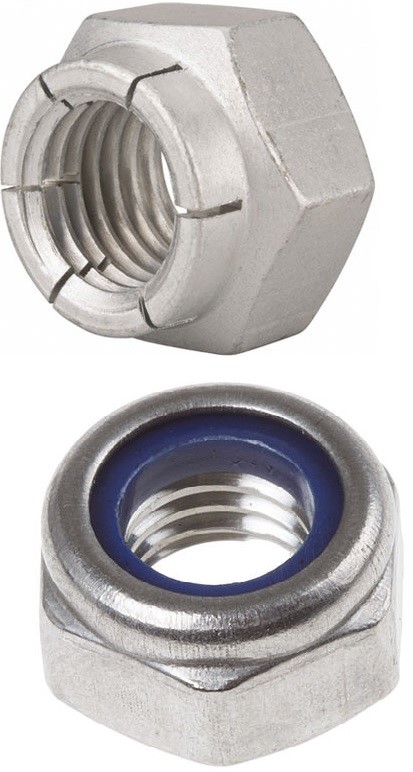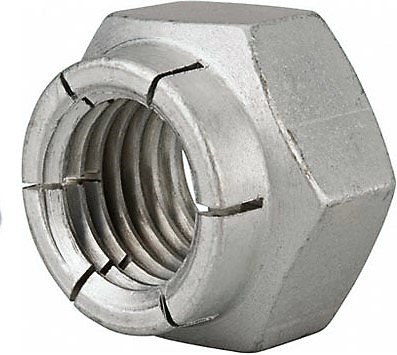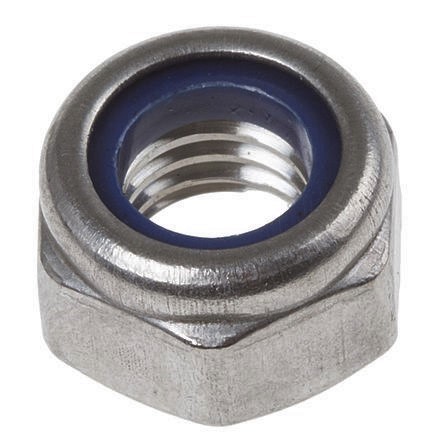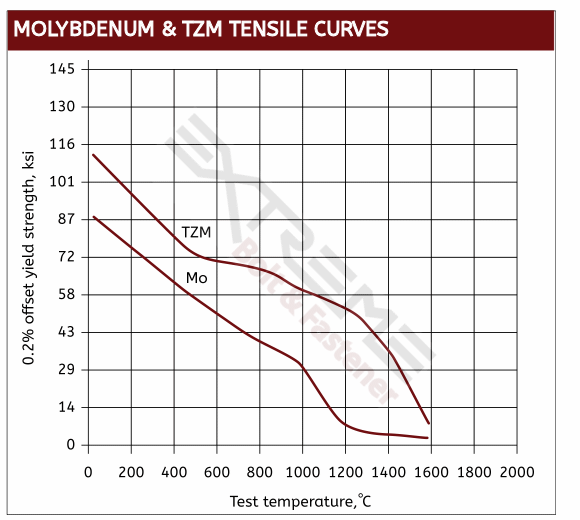When extreme high temperature stability & strength are required
- Maintains strength at elevated temperatures

- Low distortion at high temperature
- Molybdenum must be used in vacuum or inert gas at high temperatures
- Common molybdenum grades and specifications
- Molybdenum lock nut features and benefits
- Molybdenum datasheet
Molybdenum lock nuts possesses a very high melting point of 2620°C, a low coefficient of thermal expansion and a high level of thermal conductivity. Because molybdenum nuts have the ability to withstand extremely high temperatures without changing shape, expanding or softening significantly, they are ideal for high strength / high temperature applications that are shielded from oxygen. Exposing molybdenum fastener to oxygen above 600°C will cause them to readily oxidize.
As a result, molybdenum lock nuts find their way into high temperature vacuum furnaces, glass production, military and space applications where oxygen is not present.
Resources: Molybdenum Torque Spec
Molybdenum Locknut Features and Beneifts
A molybdenum locknut resists loosening from vibrations and torque. One of the most common styles is a prevailing torque locknut. This kind of molybdenum locknut has a prevailing torque feature which deforms elastically, preventing it from freely spinning like a standard nut.
The two most common and reliable forms of prevailing torque locknuts are the flexloc style and the polymer insert lock nut. A molybdenum flexloc nut is all-metal in composition with a segmented collar that creates six “locking fingers,” that act as a spring. Molybdenum polymer insert lock nuts are often referred to as nylon insert locknuts, although various high performance polymers can be used for the screw threads to “bite into.” Both flexlock and polymer insert locknuts are available in both hexagonal and 12 point configurations.
All Metal Flexloc Lock Nut |  Polymer/Nylon Insert Lock Nut Polymer/Nylon Insert Lock Nut |
|
|
Other all metal lock nuts available include the molybdenum stover and elliptical styles. Though these styles are often a cheaper initial cost, they are less reliable than the flexloc style. As these styles delivering less prevailing torque cycles and often result in more failures, the flexloc style is a better investment for both reliability and cost savings.
Common Molybdenum Nut Grades and Specs
Molybdenum (Commercially Pure)
Because of its high melting point of 2620C and its good strength, pure molybdenum finds it niche in high temperature vacuum or inert environments without oxygen.
Molybdenum Specifications: ASTM B386, ASTM B387, Type 361

TZM - Titanium / Zirconium / Molybdenum Alloy
This alloyed version of molybdenum provides enhanced strenght at elevated temperatures and is excellent for support structures in vacuum furnaces or other high temperatuer and oxygen free environments.
TZM Specifications: UNS R03630, ASTM B384, ASTM B385, ASTM B386, ASTM B387

Mechanical Properties

